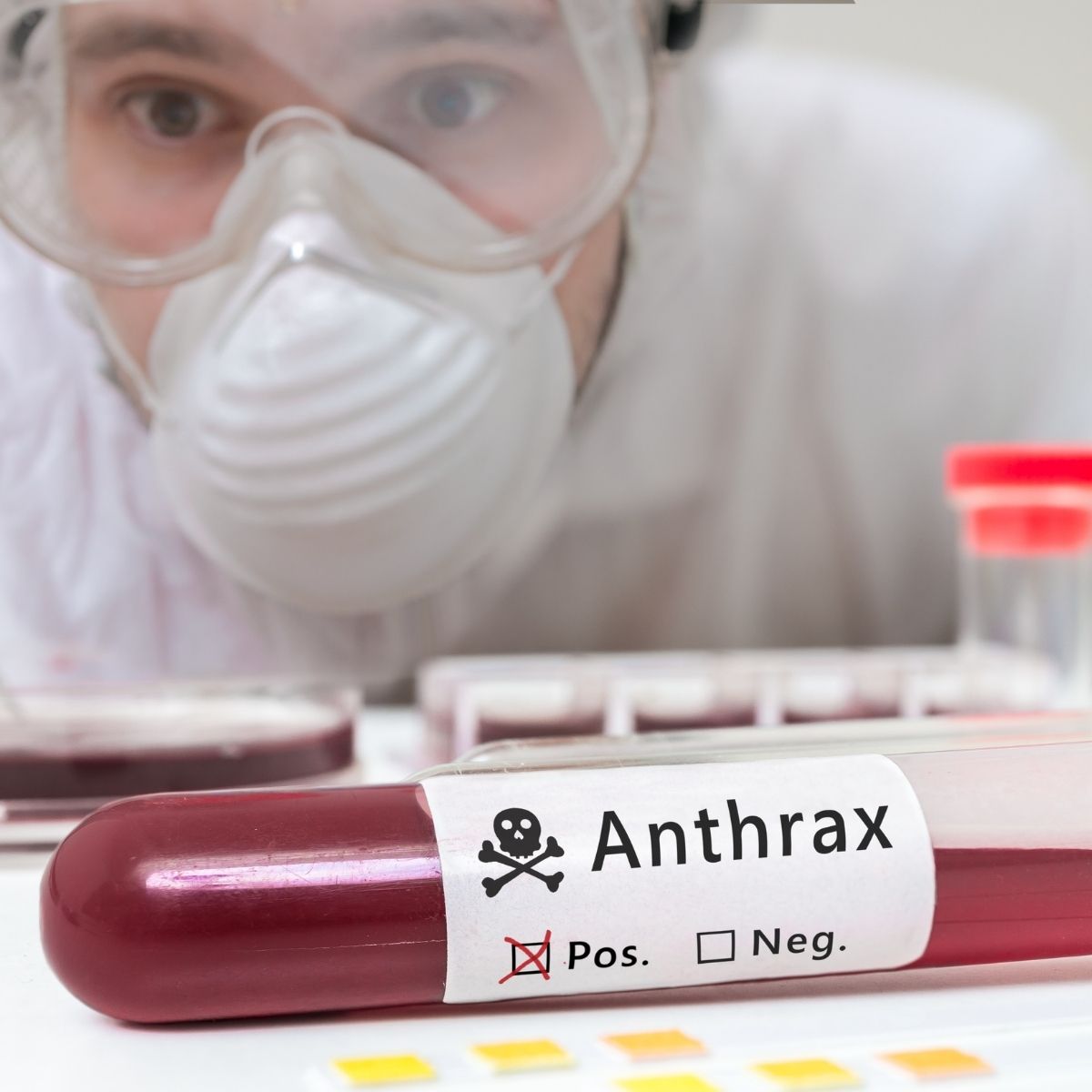Causes and risk factors
The spores of the anthracis bacillus are infective. It affects animals like cattle, sheep, Goat and horses. Infection can be transmitted from these animals to human beings. Inhalation of these spores, intake of infected meat or contamination of the cuts or wounds with spores can cause anthrax. People engaged in military or handling animal products like fur, wool of hides are more prone for infection.
Clinical presentation:
Symptoms are seen depending upon the route of entry.The common routes are skin(cutaneous),lungs(inhalation) and gastrointestinal(ingestion). In cases of cutaneous affections redness of the affected area, itching, and eruptions are seen. Initially boils are seen which gradually turn into ulcers, typically brown color in centre with red margins. Gastrointestinal symptoms is due to ingestion of the contaminated meat leads to nausea, vomiting, headache, pain in abdomen, fever and diarrhea, bloody diarrhea. While inhalation of the spores into the lungs can give rise to flu like symptoms comprising of fever, Coryza, cough, pain in throat, difficulty in breathing along with mild discomfort in chest. Anthrax infection can lead to severe complications like meningitis and even death.
Investigations:
Diagnosis is done on the basis of the symptoms narrated by the patient and the examination carried out by the doctor. To exclude acute influenza, pneumonia etc Depending upon the symptoms certain investigations can be advised which will help in confirming the diagnosis. Routine blood test, Stool test, Chest X-ray, skin biopsy can be done. Lumbar puncture is carried out in cases of complications.
Treatment:
Administration of antibiotics is the main line of treatment in cases of anthrax. Vaccines against anthrax are the only prophylactic measure. Care must be taken while handling the livestock and animal skins. Proper sanitation and maintaining good personal and environmental hygiene is necessary to prevent the spread of infection
Other Modes of treatment:
Certain other modes of treatment can also be helpful in coping up the symptom. Taking into consideration the symptoms in holistic way, homoeopathy can offer a good aid for the relief of the symptoms. Similarly the ayurvedic system of medicine which uses herbal medicines and synthetic derivates are also found to be effective in treating the symptoms.
Recent update:
The international research team led by Professor Danny Altmann from Imperial College London was funded by US National Institute of Health (NIH) to explore a new form of vaccine against the anthrax bacterium.






























